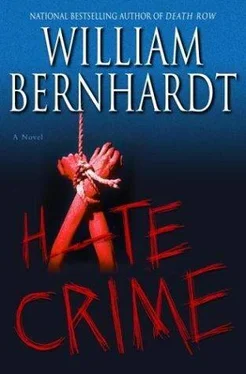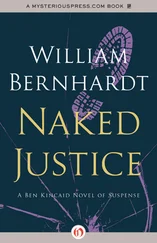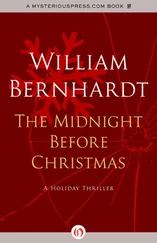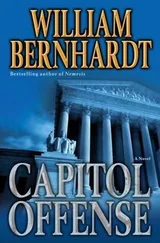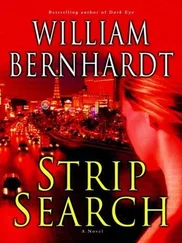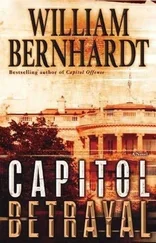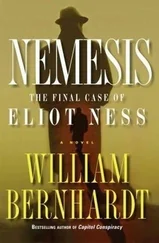“But your honor, the needs of-”
He looked at her harshly. “Here in Cook County, Ms. McCall, when the judge says he’s ruled, it’s over. Move on.”
Christina reluctantly turned to the next page. That was by far her best shot-the motions to suppress evidence were major-league long shots.
After Tony Barovick’s body was found in the frat house, the Chicago PD put out an APB and began rounding up every member. They found Johnny and Brett, along with several other frat boys, at Remote Control, the bar where Tony had worked. A visual inspection showed that both Johnny and Brett had scraped knuckles and blood splatters on their clothing. They arrested the two and read them their rights. Johnny stayed cool for a while, but the police continued to needle him, hoping he would do exactly what he did-display some of the temper that would’ve been necessary to exact the punishment visited on Tony Barovick. He pushed the officers away, screaming, “Who the fuck cares what happened to that flaming faggot?”
It was not a confession, but to the jury, it would have the exact same effect.
“First of all, your honor, we move to strike from the prosecution’s witness list all those persons who overheard statements made by Johnny Christensen and Brett Mathers at the bar the night of the murder. Allowing them to repeat what was said by a third party is, by definition, hearsay.”
“We don’t disagree,” said Drabble, rising once again. “But it falls within acknowledged hearsay exceptions. The defendant’s statements are admissions against his interest. His partner’s statements are admissible because the declarant is obviously unavailable-being dead.”
“Hearsay exceptions are allowed at the court’s discretion,” Christina rejoined, “and should only be permitted where the circumstances suggest reliability. Here, there are no such assurances. The men were all drinking heavily. The two suspects were both puffing, trying to impress their friends.”
“By bragging about mercilessly beating a man,” Drabble added.
“The point is that nothing about this scenario suggests trustworthiness.”
Lacayo shook his head. “I’m sorry, counsel. Once again, I can’t agree with you. The statements combined with the close proximity in time to the murder suggest trustworthiness to me. The fact that they even knew a beating had taken place so soon after the event, only minutes after the body was found, suggests that the statements were truthful. And, frankly, if someone’s stupid enough to make remarks of that nature in a public place, they deserve to hear them repeated in court.”
“Pardon me, sir, but it sounds as if you’re punishing my client for being stupid.”
“No, ma’am. Life punishes the stupid. No need for the courts to get involved.”
Christina felt her knees weakening. She was bombing out here, and she damn well knew it. If she couldn’t do better than this, Johnny Christensen was a dead man.
She glanced over her shoulder to the front row of the gallery. Since her client hadn’t been released for this hearing, his mother-as the woman who had hired Christina-was the most important person in the room. Ellen Christensen sat with a remarkably stoic expression.
“Your honor,” Christina said, trying to pull herself together, “if I might direct your attention to one statement made by my client after he was taken into custodial arrest.”
“That’s the one we like to call ‘the confession,’ ” Drabble said.
Christina flashed him an evil look.
“You’re talking about the”-Lacayo cleared his throat, then spoke in lowered tones-“the ‘flaming faggot’ remark?”
“Yes, your honor. Contrary to being a confession, this statement isn’t even relevant to the crime. It doesn’t indicate what he did or did not do, only his… opinion regarding persons of different sexual preference. It should be excluded, since it is potentially damaging and not probative of the matter at issue.”
“I greatly disagree,” Drabble said. For the first time, his voice rose. “This statement is uniquely probative of one important fact-the defendant’s venomous hatred of homosexuals. This was a hate crime. And this statement evidences that hate more clearly than I could do in a thousand closing arguments.”
“I’m sure the DA would love to have this statement in his closing argument,” Christina said, “but that doesn’t make it relevant.”
“It goes to motive,” Drabble said. “More than that, actually. It proves motive.”
Lacayo shook his head. “I’m afraid that once again I’m inclined to agree with the prosecutor.”
Christina tore desperately through her notes. “What about Miranda rights?”
Lacayo glanced down at his briefs. “I have an affidavit stating that the rights were read and that the defendant waived them.”
“The defendant had been drinking,” Christina insisted. “His table was littered with tequila shot glasses. The police saw that. They knew he was in a vulnerable mental state. So they read him his rights real quick and started pounding him with questions.”
“Again, counsel, I’m not willing to give the man special privileges because he voluntarily engaged in foolish conduct.”
“Your honor, if the police can do this, they could pick up any kid who’s had a few too many and start hassling him till he says something incriminating. No one would be safe.”
Lacayo removed his glasses. “I think this is getting a bit far-fetched.”
“It goes to consent, sir, and the Constitution and the rulings of the U.S. Supreme Court require that Miranda rights be knowingly waived before the police may question. In his state of mind, he couldn’t possibly-”
“Let’s just cut through the baloney, could we?” Lacayo said, revealing another spark of temper. “Do you have any evidence indicating that your client did not understand his rights when they were read to him?”
Christina hesitated. “Well, the whole scenario-”
“I thought not. And if this man had his wits about him enough to brag about a hideous crime, he was able to understand the rights which he’s probably heard on television a thousand times before. Forgive me for saying so, counsel, but this argument is weak.”
“Your honor-”
“I don’t normally try to advise counsel, but I’m going to make an exception here, Ms. McCall, because you’re new to our court. I know this case has been thrust upon you in difficult circumstances. But you do not do your client any favors with these desperate arguments.”
Christina’s lips parted.
“To the contrary. By making it seem as if you’re floundering about, grasping for any straw no matter how feeble, you disincline the court to grant any relief in your favor and make a bad situation worse.”
Christina was speechless. Chewed out in open court, in front of the woman who hired her and a host of state and national media. Of course Lacayo was grandstanding for the reporters, but that made no difference. This was devastating.
“The best thing you can do now,” the judge continued, “is to stop making motions, go to trial, present what evidence you may have in a calm and reasoned manner, and let justice take its course. That public policy you were so concerned about earlier is not served by these frivolous attempts to suppress the truth.”
Christina fell into her seat, so choked she couldn’t speak.
“Your motion is denied. All your motions are denied. So if there is nothing else-”
“If I may, your honor,” Drabble cut in. “The state has a pending motion to bifurcate the evidentiary portion of the case from the sentencing portion. I filed a brief.”
The judge nodded. “I don’t have any problem with that.”
“Wait just one moment,” Christina said. “I didn’t get his brief.”
Читать дальше
